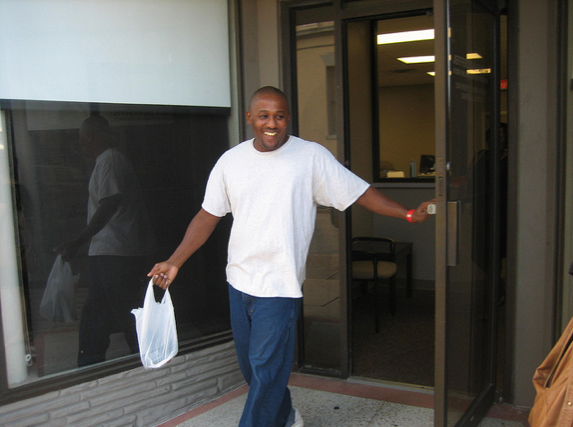Exonerations highlight criminal injustice in the South

A new database that tracks exonerations of people who were falsely convicted of crimes underscores longstanding problems with the South's criminal justice system.
The National Registry of Exonerations, a joint project of the University of Michigan Law School and the Center on Wrongful Convictions at Northwestern University School of Law, profiles almost 900 exonerations -- the largest collection of such cases ever assembled.
Almost a third of those exonerations -- 32 percent -- occurred in Southern states.
The project has released a report that looks at over 870 individual exonerations from January 1989 through February 2012. It also documents more than 1,100 additional "group exonerations" related to 13 police corruption scandals, most of which involved the planting of drugs or guns on innocent people. Three of those scandals took place in the South, with two in Texas and another in Kentucky.
The report notes that it's essential to put the numbers in context:
No matter how tragic they are, even 2,000 exonerations over 23 years is a tiny number in a country with 2.3 million people in prisons and jails. If that were the extent of the problem we would be encouraged by these numbers. But it's not. These cases merely point to a much larger number of tragedies that we do not know about.
Illinois led the way among the states with the most number of individual exonerations at 101. Among the other nine states with the greatest number of exonerations, three were in the South: Texas with 84, Louisiana with 34 and Florida with 32.
Illinois also led the way as the state with the most exonerations per capita, with a standardized rate of 2.785. Three states in the Deep South were also among that top 10: Louisiana in second place at 2.653, Mississippi in fourth with 1.55, and Alabama in 10th place at 1.184.
Cook County, Ill., whose seat is Chicago, was the U.S. county with the greatest number of exonerations at 78. Dallas County, Texas came in second with 36 and Louisiana's Orleans Parish, which covers the same area as New Orleans, came in 10th place with 13.
Looking at exonerations per capita by county, however, New Orleans led the nation with a rate of 13.374, far surpassing second-place Suffolk County, Mass. (Boston) at 9.308. Neighboring Jefferson Parish, La, which includes most of New Orleans' suburbs, came in fourth with a rate of 6.542, followed by Dallas County at 5.377.
Louisiana and New Orleans have long been known for their troubled criminal justice systems. The state's incarceration rate is double the national average, with the share of its population locked up in jails or prisons triple that of Iran and seven times that of China -- and the pursuit of profit is a key driver, according to a recent Times-Picayune investigation.
In New Orleans, one in 14 black men is behind bars, while one in seven is either in prison, on parole or on probation. A report released last year by the U.S. Department of Justice found that the New Orleans Police Department engaged in patterns of misconduct that violated the Constitution and federal law, including planting evidence and untruthfulness.
Among the other findings of the exoneration report:
* In 92 percent of the 873 individual exonerations the defendant's race was known; 50 percent were black, 38 percent were white, 11 percent were Hispanic and 2 percent were Native American or Asian.
* 83 percent of the exonerations detailed in the registry were in rape and homicide cases, which constitute about 2 percent of felony convictions.
* Of those exonerated, 8 percent pled guilty and the rest were convicted at trial -- 87 percent by juries and 8 percent by judges.
* 37 percent were cleared at least in part with the help of DNA evidence.
* More than 75 percent had spent at least five years in prison, and more than half served at least 10 years.
(Photo of Larry Delmore being released from prison after his exoneration is by the Innocence Project of New Orleans via Flickr, used here with permission. According to the exoneration database, Delmore and two other men were convicted of murdering an alleged crack dealer in Jefferson Parish, La. in 1993. In 2002, attorneys with the Innocence Project New Orleans began investigating the case and found evidence that had not been disclosed to the defense, including statements that another man had told people he was the killer. Louisiana dismissed the charges against the three defendants in 2010.)
Tags
Sue Sturgis
Sue is the former editorial director of Facing South and the Institute for Southern Studies.
